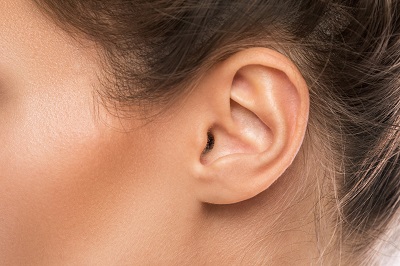 A University of Queensland study is looking for healthy volunteers to provide a single sample of gargled saltwater in an effort to tackle chronic ear infections.
A University of Queensland study is looking for healthy volunteers to provide a single sample of gargled saltwater in an effort to tackle chronic ear infections.
Chronic ear infections are the leading cause of preventable hearing loss in Indigenous children, however standard treatments (e.g. antibiotics, vaccines) have not made a substantial difference in rates of disease.
New ways of combating chronic ear infections are now being considered by researchers at the UQ School of Chemistry and Molecular Biosciences.
They are attempting to develop an alternative treatment approach, harnessing naturally occurring viruses, which infect and kill the ear infection-causing bacteria.
These viruses are harmless to humans, and only infect very specific bacteria.
By providing a sample, the research team can look in places like the throat, where these bacteria are present, to find these specific viruses, and hopefully create a new way of treating chronic ear infections and prevent hearing loss.
Collections will be occurring until the end of June 2022, so register your interest by contacting the project’s Clinical Coordinator Nancy Lachner (n.lachner@uq.edu.au), Rylee Deehan (r.deehan@uq.edu.au) or Rhiannon Baxter (rhiannon.baxter@uq.edu.au).
This study has been approved by The University of Queensland Human Research Ethics Committee [Approval No. 2020/HE002818].
Frequently asked questions
Am I eligible?
Adults and children between from the age of two and up are eligible.
What will I need to do?
If you agree to participate, you will be given a sterile container and asked to provide us with an oral rinse or gargle of salt water. This will involve taking a mouthful of provided sterile salt water, and gargling (preferably) or, if you feel more comfortable, swishing it inside your mouth for 30 seconds before spitting it out into a sterile container which we will also provide. This will be a one-time collection. Apart from age and symptoms, no other personal information will be collected from you apart from registering your consent of participation in the study. The collection will take place at the Australian Centre for Ecogenomics (Building 76, St Lucia Campus), or another suitable location of convenience as decided on in prior communications with research coordinators (e.g. we may be able to come to your place of work at UQ’s St Lucia campus).
Who do I contact to organise a collection?
Please email Clinical Coordinator Nancy Lachner (n.lachner@uq.edu.au), Rylee Deehan (r.deehan@uq.edu.au) or Rhiannon Baxter (rhiannon.baxter@uq.edu.au).
What are the possible benefits of taking part?
It is not expected that you will receive any direct benefit from taking part in this study, beyond creating new means of treating chronic ear infections and improving the lives of children impacted by this disease.
What are the possible risks and disadvantages of taking part?
No discomfort is expected from the sample collection, however the option for a mouth rinse is available if you or your child do not feel comfortable in using the sterile saline to gargle with.
What will happen to the information about me?
The limited information collected (age and presence of any symptoms) will be anonymised and remain confidential in a securely stored, password-protected University of Queensland database. This information may be used in future human research ethics-approved research. It is anticipated that the results of this research project will be published and/or presented in a variety of forms. In any publication and/or presentation, information will be provided in such a way that you cannot be identified, except with your expressed permission.
What will happen if I decide to withdraw?
Your participation in this research is voluntary and you are free to withdraw from the research anytime without needing to provide any explanation, and you would not receive any penalty or bias as a result of your withdrawal. Due to the design of the study, samples will be anonymised, and thus will not be able to be identified back to the donating individual. Thus, withdrawal of a previously collected sample may not be possible.
Can I hear about the results of this research?
At the conclusion of the study, results will be published in a peer-reviewed journal, as well as presented at scientific conferences. If you wish to be informed of the results, there will be an opportunity to indicate this on the study consent form that will be provided to you.
Who can I contact if I have any concerns about the project?
This study adheres to the Guidelines of the ethical review process of The University of Queensland and the National Statement on Ethical Conduct in Human Research. Whilst you are free to discuss your participation in this study with the researcher – Dr Seweryn Bialasiewicz – contactable via email (seweryn@uq.edu.au) if you would like to speak to an officer of the University not involved in the study, you may contact the Ethics Coordinator on +617 3365 3924 / +617 3443 1656 or email humanethics@research.uq.edu.au.



